|
One of the things I love about Catholicism is that we celebrate the mysteries of our faith in a physical way. Going to Mass, kneeling, standing, singing, receiving the Eucharist, hearing and proclaiming the Word of God, experiencing community after Mass or at parish events. Some of our liturgical feast days even emphasize the physical contact between us and the Divine. Think of reverencing the wood of the Cross on Good Friday or participating in a Eucharistic procession on Corpus Christi. Our faith is incarnational, and our bodies are important conduits for worship. That’s part of the reason the last several months have been so difficult for so many. These physical elements of worship have been—largely—unavailable to us because of COVID-19 and the practice of physical and social distancing. Most of us have also been physically disconnected from our communities of faith, friends, and family. We’ve missed important events like birthdays, retirement parties, and even funerals. The emotional, spiritual, and psychological effects of this separation are very real and very serious. And it’s been clear from the outset of this pandemic that the Church must take action to alleviate the impact of isolation, despair, and loneliness caused by this pandemic. But who will lead the charge? I find myself asking, what is the Church going to do about it? How will we get through this? And then I realize, the Spirit is calling me. And, friends, the Spirit is calling you too. We’re not being called to wait around while someone else figures it out. God is calling us to figure this out together. We must remember that we are the Church on earth, and we are being invited by the Spirit to cooperate with God’s grace to take action and serve others, right now. We can’t simply wait for someone else to help. Those of us who are baptized are called to be missionary disciples and, ultimately, saints. And this call comes with a personal responsibility to recognize that all our lives are interwoven as branches grafted onto the Vine, as various parts of one Body (1 Corinthians 12). We are connected to one another through our baptism into Christ. Paul says, “The body is not a single part, but many.” And because of this interconnectedness, when one part suffers, the whole body suffers. So, we’ve got to do something about that, because we’re called to be “doers”. We are all suffering in some way during this pandemic. It’s not even possible to downplay that. And we all feel one another’s burdens. We especially feel our personal stresses and anxieties, day in and day out. I believe one of the answers to this anxiety and suffering is the beautiful work of spiritual accompaniment. The call to spiritual accompaniment is incarnational and based on the love of Christ. Spiritual accompaniment urges us out of our own interior world and presses us to walk with our brother or sister in whatever situation they might find themselves. Pope Benedict XVI says that God’s love for humanity is so strong that “it turns God against himself, his love against his justice” (Deus Caritas Est, 10). How, then, can we demonstrate a reflection of this great, personal love to one another if we can’t be physically present to one another? I believe we must be creative and find ways to communicate our companionship to one another in meaningful ways. We can allow ourselves to be challenged by these questions while we reflect on this topic: Do I have the ability to be present to my suffering neighbor in any way today? Do I have the capacity to do charitable spiritual accompaniment during this pandemic? I believe one effective way to spiritually accompany others as we remain physically distant is to ask challenging questions of others and engage in honest conversation. Though this may seem simple, “faith sharing” is a powerful way to be witnesses of God’s presence, and we all need to be reminded of God’s presence these days. I think there are two simple, penetrating questions that can start fantastic spiritual conversations that open our eyes to the great works of God. They are:
The answers to both of these questions reveal our hearts, our spiritual yearnings, our joys, and our sorrows; the answers to both of these questions lead us to recognize God’s presence among us, either by contemplating where we’ve seen God or petitioning His aid through prayer. I want to challenge you to invite a friend or someone you’re close with to consider these questions and then to hear their answers. Perhaps you’ll be surprised at the way the Spirit guides the conversation. I believe that through this simple practice of spiritual accompaniment, we will grow closer with one another, though distance or politics or ideologies may keep us apart. Loving and holy conversation is one way to begin healing the wounds caused over these last several months, and it is one way to accompany one another on the road as we travel strange, new paths together. To learn more about spiritual accompaniment, please click here. For more resources to deepen your faith during COVID-19, please click here.
0 Comments
Amid a time of challenge and difficulty, joy makes appearances in many ways. Recently, several Catholic Apostolate Center staff members and collaborators deepened their baptismal call through Ordination to the Priesthood and Marriage. We also celebrated the Baptism of the child of one of our staff members. The child is named Vincent for St. Vincent Pallotti. In every case, these celebrations were delayed and greatly reduced in size due to the pandemic, but the joy of these days found in the hope of Christ was evident in every one of them. Fr. Alex Boucher, a staff member during the first years of the Center and a current collaborator, was ordained to the priesthood for the Diocese of Portland (Maine). Hally Moreno, Marketing Coordinator, celebrated her marriage to Benny Morales. Center Collaborator, Fr. Joseph Hubbard was ordained to the priesthood for the Archdiocese of Boston. Vincent Scott Pierno, son of Senior Consultant, Chris Pierno, and blog contributor, Krissy Pierno, was baptized. His godfather is Fr. Alex Boucher. At each of these events, Center team members participated in the liturgies as part of the accompaniment that is our hallmark and rooted in the charism of St. Vincent Pallotti. We had accompanied them in their discernment and joined in the celebration. They all live their lives as apostles of Christ and witness to others not only through their particular vocation in life, but also in their support of one another. Such spiritual friendship was part of the life of St. Vincent Pallotti and is an aspect of the Catholic Apostolate Center that is intrinsic to our apostolic work. We support one another in prayer and in our lives in Christ. Each will do this in a unique way, but we are all called to accompany one another in life and in faith. May the Charity of Christ urge us on!
During my fifth year with D.C. United, the team brought in a nutrition specialist. The specialist gave his presentation and then looked toward a table in the middle of the locker room that held about 40 pill bottles of vitamins, supplements, mild pain relievers, gels, powders, and who knows what else. The nutritionist then walked over to the table, looked back to us, and said, “you know, if you just eat well you can throw all of these out. In fact, you’d be better off doing that.” He left the locker room five minutes later and never came back. For my first five years at DCU, I had been taking those vitamins and supplements at the recommendation of our strength and conditioning coaches and athletic trainers. Now a certified nutritionist deemed the whole thing a waste of time and had even said they could hinder our performance—I wondered what exactly to do. Who should I listen to? This memory has stayed with me because it matters a lot for an athlete what you do with your body. It matters how you train, eat, sleep, relax, and recover. You need to know what is helpful for your athletic development and what is unhelpful. I wanted to know if the pills and supplements helped me or hindered me. This all applies to athletic prudence in the natural realm. Prudence is the ability to judge rightly and act according to that knowledge. It is being able to think through things correctly and then make the right choice. Thus, athletic prudence is the ability to choose and act rightly in the realm of an athletic pursuit. We make decisions and then act based upon what we have concluded is actually helpful or unhelpful in relation to our goal. I would like to apply this same line of thinking to the virtue of prudence in the supernatural realm. We should be asking what is helpful or unhelpful in terms of our spiritual lives. Just like the nutritionist condemning our pill vault and making me wonder what was actually helpful for my soccer career, we should ask what in our lives helps or hinders us from going to God. In order for us to do this, of course, we must acknowledge that God is both our goal and a worthy (the most worthy!) goal at that. When I got to the height of my playing career I was devastatingly depressed for a very concentrated span of time (only several days). For months I pondered why I hit such a low point amidst more success than I had ever expected. Eventually, through the help of the Holy Spirit, I realized that God allowed me to feel the weight of my success without Him. It was an incredible grace—but also one that was difficult to really learn. Over time the truth that my soul was more important than my sport sunk in. I realized that much of what I had made my life about was, in the end, unhelpful for reaching the ultimate Goal who is God. I started applying my athletic thinking to my spiritual life. I started asking the right questions—is this helpful or unhelpful for my spiritual life? Should I be hanging out with this group of friends so much? Are my weekend habits really bringing joy to my life? Am I living as the person I want to be? Do I know who I want to be? These questions led—and continue to lead—me to Jesus, and I find myself needing to ask them again and again. Do the decisions I make help me become who I want to be? Or are my decisions hindering me from being that person? Athletic prudence helps athletes maximize their potential and use their God-given gifts to the best of their ability. This same principle can—and should—be applied to our spiritual lives. Are the decisions, actions, and principles that guide my life helpful? Are they leading me in a good direction? Prudence, says St. Thomas Aquinas, is the mother of the virtues. You cannot possess any virtue without the virtue of prudence because prudence is what enables us to recognize what is truly good (helpful) and then act according to that good. No athlete can become great apart from athletic prudence because athletic prudence enables the athlete to recognize and act upon what helps him or her become a good athlete. Far more important, however, is the realization that no person can become who they were created to be apart from supernatural prudence. It is not possible to follow Christ without first asking yourself what exactly it is you’re already following—what is it that shapes your decisions? It may be a desire for comfort, power, status, honor, wealth, success, popularity, or any number of things. But they all fall short. To be prudent you must know the end goal. You cannot attain the virtue of prudence in the whole of life without knowing that “it is Jesus in fact that you seek when you dream of happiness.”  Taylor Kemp is an instructor for the Denver Catholic Biblical School as part of the St. John Vianney Seminary Lay Division in the Archdiocese of Denver. He is a former professional soccer player, amassing over 100 appearances over six-years in Major League Soccer (MLS) for D.C. United, and playing for both the youth and full United States Men’s National Team. Taylor holds an MA in Theology from the Augustine Institute and BS in Business Management from the University of Maryland, College Park. “Through your infinite mercy… destroy in me all my cruelty; give me your mercy, transform me in your mercy, and let my life be a life only of works of corporal and spiritual mercy for the benefit of all.” - St. Vincent Pallotti If one goes online right now, he or she will find many uplifting posts on social media. But all too often, there are also cruel attacks aimed at one another—even by practicing Catholics. Yet, as St. Vincent Pallotti reflected on and experienced, God is infinite love and mercy. In and through our experience of God’s mercy and love, we are challenged to live both out in our interactions with others both physically and online. As St. Vincent Pallotti attested to, the Corporal and Spiritual Works of Mercy are fundamental to our growth and spiritual lives. Everyone knows there is suffering of all sorts in our world. Why would a Christian want to add intentionally to that suffering? Sometimes, this can be done unintentionally through sins of omission. As we say at Mass during the Confiteor, we ask forgiveness for “what I have done and in what I have failed to do.” Doing the Corporal and Spiritual Works of Mercy can aid us in examining our consciences. We can then seek forgiveness and mercy from God, especially in the frequent celebration of the Sacrament of Penance which helps us experience more deeply the infinite mercy and love of God. From there, we go forth witnessing to others what we ourselves have experienced. Pope Francis reminds us: “Mercy towards a human life in a state of need is the true face of love” (Angelus, July 14, 2019). Instead of causing suffering, we are called to compassion—to suffer with another. This is not easy, but practicing the Corporal and Spiritual Works of Mercy will assist us in learning and living a compassionate, merciful, and loving way of life in Christ. May we pray with St. Vincent Pallotti to be transformed in God’s mercy for the benefit of all. May the charity of Christ urge us on!
Imagine four graduate students passionate about ministry and ready for new experiences. We pulled up to a ranch house in New Hampshire in August 2012 and unloaded our packed cars. Our next two years were devoted to serving in local parishes while earning our degrees in theology through the Echo Graduate Service Program. Our first community prayer took place on the Feast of St. Bernard of Clairvaux, whose feast day we celebrate on Thursday. The translation for “Clairvaux” is “Valley of Light”; we didn’t know a great deal about Bernard, but the theme of light clicked. We were accumulating candles as welcome gifts from our parishes, so of course, it was a sign! We pieced together his biography and reflected on his dynamic writings. We asked St. Bernard to be the patron of our house and bless our time together. St. Bernard was a monk who lived in 11th century France and became a Doctor of the Church. From an early age, he was considered devout and well-educated. The third of seven children, Bernard took a particular interest in poetry and had a special devotion to Mary. He notably authored the Memorare prayer. He became a respected abbot of what are now the Cistercians in the Diocese of Langres. Bernard is credited with naming the monastery he began Claire Vallée, in an area originally named Vallée d'Absinthe, or Valley of Bitterness. He was known for his influence among clergy and political leaders. St. Bernard died in 1153 and was canonized in 1174. Now imagine a young family. My husband, one-year-old son, and I prepared to “hunker down” for quarantine in March 2020 in Indiana. Five months later, we are still amid a global pandemic that can feel overwhelming, oppressive, disheartening, and confusing all at once. The virus has also revealed some of the most beautiful elements of community and compassion. While I can’t compare the virus to the challenges Bernard faced as a young adult starting a monastery with a “band of monks,” I appreciate how he held fast to the deeper purpose of Benedictine life. He cultivated habits of work, leisure, and rest while counseling his fellow monks, clergy, and politicians. COVID-19 forced me to recognize how I create space to listen and be with God both inside and outside my home, much like Bernard’s contemplative life. Eight years ago, the patron of candlemakers introduced what it means to practice a type of “spirituality of home” where home is not only a place for living, but also one of brightness, hope, and intentionality. I can see hope daily in our little boy, doing the hokey pokey many times over, reading books, and playing chase. We intentionally set up a prayer table in our living room where we say morning and evening prayers as a family and filled walls with icons and pictures to remember who it is we say thank you to! These habits took time, but they have been a source of security in such a time of uncertainty. I’m grateful to St. Bernard for bringing light to all the “unknowns” in our little ranch house in New England and my first home in the Midwest. He is a guide who shows us how to cultivate habits that lead to a deeper relationship with God, our true home! Reflection Questions: How might we practice a “spirituality of home”? Where is the light in our individual “valleys of bitterness,” i.e. isolation, loss, anxiety, or despair? Inspiration for this article came from the book Theology of Home. If you enjoyed this post, we invite you to read Creating an Inner Monastery During the Coronavirus Pandemic.
As the ongoing coronavirus pandemic eventually allowed for opportunities to leave the home, one of the most meaningful greetings which welcomed my return to Mass were the familiar words, “Peace be with you.” The calming presence of the parish priest eased the troubles of my mind, soothed the restlessness of my heart, and enlivened my soul to sing, “Let us go unto the House of the Lord!” While the celebration of the Holy Sacrifice of the Mass and the reception of our Lord in Holy Communion immediately made up for the lost time during the pandemic, there were other reminders that we had been away: new priest assignments, reminders to exchange the weekly offering envelopes, many parishioners enthusiastically greeting each other in happy parking lot reunions, our pastor sporting a new beard, and someone even observing, “You’ve lost some weight, Father!”
The place our parish priests hold in our hearts is a treasured one. We depend on them to teach us through homilies, expose the Blessed Sacrament, listen to our sins and offer absolution, preside over the nuptial Mass, baptize our children, anoint the sick, and console us through times of death. And that’s just the minimum. While the rest of us are busy at work, school, or caring for our households, our parish priests are meeting with the church leadership, making rounds at schools or hospitals, organizing retreats and special services, offering spiritual guidance, and working at the rectory. But caring for the spiritual needs of hundreds of parishioners does not end at 5 PM. Starting from the sacred occasion of ordination, a priest is always on-call. Who rushes to the side of the dying, cares for those who have lost everything, counsels those in conflict, or ministers through any number of crises? Who faces the mounting expenses and bills of the parish, limited Sunday collections, possible stagnation of new family registrations, and who perhaps lacks as many helpful hands as he would like to keep the place running smoothly? Especially through this pandemic, the parish priest again and again is called to bring us into an encounter with Jesus Christ as best he can with whatever resources are at his disposal. If caring for our household’s needs presents a challenge, just imagine how the parish priest feels overseeing his parish! As the Church celebrates the feast day of St. John Vianney, we can see how so many of the priests in our lives emulate the example of the Curé d'Ars, who himself followed the example of the priesthood of Jesus Christ. The French Revolution resulted in an increase of the population’s ignorance of and indifference to religion. As a result, St. John Vianney went about his priesthood by spending at least 11 or 12 hours a day in the confessional in the winter; longer still in the summer. The simple piety of this holy priest not only brought about many conversions for the Church, but reinvigorated the faith in areas where secularism had long dominated the culture. Likewise, by immersing themselves into the daily lives of our communities, our parish priests “serve ‘in the trenches,’ bearing the burden of the day and the heat (cf. Mt 20:12), confronting an endless variety of situations in [their efforts] to care for and accompany God’s people.” Pope Francis continued, in his 2019 letter to priests commemorating the 160th anniversary of the death of St. John Vianney, to express his closeness and solidarity to priests. He also expressed personal gratitude “for your fidelity to the commitments you have made… [and] for the joy with which you have offered your lives.” The Holy Father concluded his letter by praising the witness of their shared vocation: For I am confident that “God takes away even the hardest stones against which our hopes and expectations crash: death, sin, fear, worldliness. Human history does not end before a tombstone, because today it encounters the “living stone” (cf. 1 Pet 2:4), the risen Jesus. We, as Church, are built on him, and, even when we grow disheartened and tempted to judge everything in the light of our failures, he comes to make all things new.” … May we be men whose lives bear witness to the compassion and mercy that Jesus alone can bestow on us. Let us strive to show the priests in our lives our gratitude and support. May many men continue to discern and answer the call of our Lord to the sacred work of ordained ministry. As we answer the universal call to holiness in our own lives, may we also support those who have dedicated their lives to answer, “Here I am. I come to do Your will.” To learn more about Holy Orders, listen to our latest podcast here. “The beginning of all effort is the recognition of what is.” -Romano Guardini, Learning the Virtues That Lead You to God, 1963 Professional athletes do many appearances while playing. We get paid to show up at fundraisers, youth camps, watch parties, and promotional events. Something that is practically a guarantee when attending these appearances is one or more sets of parents coming up to tell us about their child who plays soccer. Often these conversations are quite enjoyable, but almost inevitably, there are a few who want to talk about how their son or daughter was short-changed in their youth soccer experience. There is a lot that these parents say to us, but the consistent element is: my child didn’t succeed because of some external factor. This may very well be the case for some of them. It is equally true, however, that it is certainly not the case for all of them. Much of the time the boy or girl just wasn’t good enough for a particular team, level of competition, or system of play. The point of this post is not to drop the heavy hammer that many kids run out of the athletic ability rope and should give up. No, this post is about the absolute necessity of taking an honest stock of where someone actually is--especially for the spiritual life. Romano Gaurdini says that “the beginning of all effort is the recognition of what is.” The reason for this being that you cannot begin making the effort to improve unless you start with who you already are. Any professional athlete will tell you that it is far more helpful to be taught how to assess and address weaknesses rather than to pretend they don’t exist. In fact, most professional athletes are fairly obsessive about identifying areas in their game where they can improve. If I determine I’d like to be a better shooter with my right foot, for example, then I must begin with the harsh—but necessary—reality that I can barely complete a pass with my right foot. If I never acknowledge my current ability, I’ll constantly run into problems—poor technique, inadequate fundamentals, and so on. I’ll never become a strong shooter without addressing the plain truth of my current ability. This is a skill that requires disciplined practice and will never simply be acquired because I want it to be so. First comes acknowledgment, then a plan for improvement, all for the hope of becoming a good right-footed shooter. This same principle can and should be applied to our spiritual lives. Just as improvement can only take place in athletics by beginning with where an athlete currently is, spiritual advancement can only begin by taking an honest assessment of where one currently is in relation to God. This means you’re far better off admitting that you struggle to pray for 5 minutes and taking that to God than wondering when you’ll receive the Stigmata. It is far more helpful to search deep within yourself and locate and name your pride, selfishness, ego, envy, or lust than only present to God your most pious and holy thoughts. He knows your heart already—He’s just waiting for you to know it as well. One of the most helpful exercises for high-school, collegiate, and professional athletes is to watch film in order to identify strengths and weaknesses. The team watches the most recent game in order to see what needs to be addressed that week in practice. This same concept can migrate into our spiritual lives—we look for points of departure and development in order to draw nearer to God. This practice is not to discourage but to improve. There’s no shame in acknowledging ourselves as we really are. In fact, God can really only begin to heal us once we acknowledge where we are hurt. The Physician cannot tend to our wounds unless we let Him see them. Several days ago, I was talking to my wife about this concept and she brought up how watching film for athletes is similar to the examination of conscience recommended by the Church. Examining one’s conscience on a regular basis is like looking back over the tape to see the strengths and the weaknesses—the graces and the sins—in order to grow. Then, with this self-knowledge, we can go to God, say thank you, and ask for forgiveness, trusting in His merciful love. God looks down on us and loves us as we are, but He also promises that His love is transformative. He looks down and says, “I love you,” while at the same time calling us higher. He wants us to identify what is so that we may cooperate with His grace and begin the beautiful work of improvement. This we call sanctification. May we all be willing to look at ourselves honestly—as we really are—so that we enter into the effort that is the fight of faith (cf Jude 3), trust that God’s grace is sufficient (see 2 Cor 12:9), and become the saints Jesus Christ died for us to be.
I stumbled into entrepreneurship in 2016 after studying philosophy, theology, and anthropology for my undergraduate and graduate degrees. Ending up in the business world felt like a long and winding road filled with sleepless nights, much discernment, and many conversations. In the few years after graduating from college, like many early 20-year-olds, I felt untethered and unsure of my direction. What was my direction in life? What was my mission? How did the Lord want me to use my gifts and talents to serve him? At the time, I attempted to answer these questions by searching for women who had accomplished work in the same field that I was going into. I spent endless hours looking for women on LinkedIn in their 40s and 50s who had achieved a successful career while also being married and raising a family. My search was futile. Although I did find a couple of single Catholic female entrepreneurs to connect with, for years, I felt like I was “making it up as I went along”: trying to weld married and family life while scaling a business, hiring and firing employees, serving clients, and trying to keep God in the center of it all. Every vocation for women within the Church is beautiful and worthy, but being a Catholic entrepreneur in particular has been challenging. Although I have developed some great friendships with secular business women, I can’t connect with them fully about discerning business decisions with my spiritual director or praying a daily rosary for my employees. Within the Catholic sphere, I can’t completely relate to stay-at-home mothers or women who are working a 9-5. I desperately needed a mentor but could not find one who was willing to devote time and effort to my growth. Speaking to women’s particular vocation, Pope John Paul II in Mulieris Dignitatem spoke to every woman’s calling to love: “The moral and spiritual strength of a woman is joined to her awareness that God entrusts the human being to her in a special way. Of course, God entrusts every human being to each and every other human being. But this entrusting concerns women in a special way - precisely by reason of their femininity - and this in a particular way determines their vocation”. Here, Pope John Paul II illuminates women’s ability to “receive the other” because of the design of their femininity. Through their motherhood, spiritual and physical, women are capable of receiving, knowing, and loving others in a manner different to men. God entrusts humanity to women, knowing that she is uniquely made to care for those around her. This act of entrusting carries through to every aspect of our modern world, including the sphere of business. Just as a mother nurtures her family, every woman in business has the mission to nurture those in her care: her clients, her employees, her colleagues. In a special way, Catholic women entrepreneurs co-create with God to create something out of nothing. Every woman-owned-business begins as merely a dream placed on her heart. Her mission is to share with the world her services and products—glimpses of God’s own heart and a genius that only she can share. This is why mentorship is essential: so that women who are called to practice business can find and live out their own unique mission in this world. Women are called to cultivate the gifts and talents of others, to foster the dreams that only they can bring forth. A mentor provides guidance, critique, and reassurance as a young person matures. This is crucial to the formation of any woman, entrepreneur or not, but also fulfills the role of each Christian to evangelize the world. Without this relationship, one might not have the tools and resources to realize their full potential. By fostering the gifts and talents of others through mentorship, women are living out their feminine genius. My Co-Founder, Emma Moran, and I created Catholic Women in Business in 2018. CWIB is an online resource of Catholic women who are seeking to live a life of faith while striving for excellence in their careers. We hope that it’s a space for women to cultivate mentorship and connection. My dream is to initiate a movement where there is more mentorship available within the Church, for women and men. In encouraging these relationships, I believe we will be able to activate the missions of those within our communities, answer the Church’s call to a New Evangelization, and to bring forth the Gospel into our society. The principle of God’s Infinite Love is consoling in prayer, encouraging in our personal darkness, and a bright light for preaching and teaching. But when it comes to pastoral care, this Infinite Love can feel overwhelming, idealistic, and impossible. On a more personal level, Infinite Love care can lead to feelings of guilt at not having done enough and shame at not being enough. Consequently, the idea of accompaniment can quickly appear to be wishful thinking. How am I to walk with people when I am just one person with one sunrise and one sunset each day? There are dozens or hundreds of people who need care in my community, but I can barely finish my homily, or you can barely get the kids to school on time. The problem is with two false thoughts. First, we are not God. We are not the source of Infinite Love, and we shall never be. Second, accompaniment does not mean that I have to walk with each person all day. This is impossible. Honestly, many good Catholics have difficulty letting go of control. The worst example of this is the savior complex. We are not the saviors, Jesus is. The reality is that the Lord God is the principal Accompanier, not us! And, out of His goodness, He has chosen myriads of intermediate accompaniers. In other words, and hear me well, WE do not, nay, we cannot try and do it all on our own. And isn’t it ironic that right after we priests preach and teach that to people that they cannot do it on their own, then, as spiritual caretakers we immediately set aside our theological principle of interdependence and try to do it all on our own. Thoughtful accompaniment lies in deploying a sophisticated network of groups and individuals to care for, to check on, to talk to, to bring communion to those in need. God doesn’t expect us to be perfect, just saints. Let the lesson of accompaniment be your lesson today: just do what you can, but don’t go at it alone. Only God is Infinite Love. When I was a senior in high school in the diocese of Joliet, then-Bishop Peter Sartain came to celebrate one of our monthly school Masses. I was asked to assist the Bishop for the day, and throughout the day he and I had many warm conversations. I received a piece of mail a few weeks later from Bishop (now Archbishop) Sartain containing a handwritten note and several prayer cards with Blessed Pier Giorgio Frassati’s image on them. Little did I know that the young Blessed would soon become one of my dear patron saints. In my opinion, anyone who offers their life as an apostle on mission—including lay and ordained ministers, Catholic school employees, catechists, and all spiritual guides—should keep Blessed Pier Giorgio Frassati as their patron saint and their example to combat despair and to joyfully share the Gospel. Blessed Pier Giorgio shows us the Christ-like demeanor and personality that the Church and her ministers and missionaries should possess as they evangelize the world. Blessed Pier Giorgio makes an excellent spiritual guide and mentor because he was an ordinary young man with a profound commitment to the poor and to justice. There are countless books and articles that describe how Pier Giorgio spent hours serving the poor and the homeless, often giving away the money he had for bus fare and even his own jacket! His parents misunderstood his great actions of charity, and often scolded him when he returned home late without his coat. He was never distracted from the missionary imperative of the Gospel. Instead, he served those on the margins as Jesus commanded. Archbishop Wilton Gregory of Washington D.C. recently stated in a webinar, “The Church lives in society. The Church does not live behind the four [walls] of the structures where we worship.” Just as Pier Giorgio Frassati befriended the poor and sought justice as a “man of the beatitudes,” we too must go beyond the four walls of our churches, homes, and offices into the margins of our society to serve our brothers and sisters and work for justice. Blessed Pier Giorgio also accompanied others in their pursuit of God. He maintained unlikely friendships and was neither bound up by cynicism nor weighed down by scandal. Instead, he actively worked against these in his interactions with all. Many stories detail his love for pranks, making bets with his friends over games and making the stakes be attending Mass or Adoration. Like this soon-to-be-saint, we must live in the world while encouraging others to return to Christ in the spirit of friendship. As apostles on mission, we must live, work, and play with a renewed spiritual vision, driven by the practice of spiritual accompaniment. The quality I most admire in Blessed Pier Giorgio is his ultimate trust in God’s plans. He did not try to take control of his life’s plan nor did he envy God’s authority. Rather, he allowed God to guide him as he discerned his future and his mission in life. Pier Giorgio brought Church doctrine to life through his service and actions. He lived with a gospel-inspired freedom. He spent time in deep prayer, contemplating the mission God had laid before him, discerning to serve the poor as a lay man with expertise in mechanical engineering rather than as a priest. Pier Giorgio trusted God. As Alfonso Nebreda, S.J. wrote, “We must not forget that man cannot nourish his spirituality with orthodoxy alone … there is more to Christianity than this … for faith is life” (Kerygma in Crisis?, Nebreda). Blessed Pier Giorgio embodied the Gospel, and he lived it out according to his mission from God. As we consider the life of Blessed Pier Giorgio Frassati, I invite those who serve the Church as lay or ordained ministers, catechists, educators, and spiritual guides to adopt this young saint as a guide for our spiritual lives and our ecclesial missions. Let us invite the same Spirit who lived in Blessed Pier Giorgio and who makes the Church vibrant to renew our hearts, minds, and missionary efforts. Blessed Pier Giorgio, pray for us! Interested in learning more about becoming an apostle on mission? Click here to learn more. After nearly three months of what reminded me of the first Holy Saturday—that is, the experience of the apostles not knowing what was in store for them after the apparent loss of their teacher—I was able to participate in the celebration of the Mass offered at my parish. As a result of the COVID-19 pandemic, many of the faithful have had to rely on the remote broadcasting of the Mass in order to remain connected to their local churches. This, of course, is no substitute for the Real Presence, but in the absence of being able to be spiritually nourished as usual, we have been blessed that the pastors of the Church could reach out and minister to us as safely as possible. I witnessed the Church creatively address the problem of being unable to gather together to worship by utilizing the tools of digital social media to share scriptural reflections, homilies, group prayers, and simply to check in and care for various needs of neighbors. The doors of the churches may have been closed, but the people of God charitably opened their hearts.
After being apart for so long, I welcome the news of a return to the public celebration of the sacraments. Nothing could be better than receiving the Body, Blood, Soul, and Divinity of the Lord in the Most Holy Sacrament of the Eucharist. Can a bride be apart from her groom? Are we not in ecstasy to return to Holy Communion when we are cleansed of sin in the Sacrament of Reconciliation? So much more fervently have I longed for He Who dwells most intimately in our hearts and reigns over us. As Padre Pio shared, “My thirst and hunger do not diminish after I have received Him in the Blessed Sacrament, but rather, increase steadily.” There is no better joy on this earth than to participate in the Holy Sacrifice of the Mass. The experience is beyond mere mortal words, but St. Thomas Aquinas aptly selected a few for the Church to sing at the Feast of Corpus Christi: At this great feast of love let joyful praise resound, let heartfelt homage now ascend to heaven’s height: ring out the reign of sin; ring in the reign of grace; a world renewed acclaims its King, through veiled in sight.[1] I look forward to rejoicing with the Psalmist, “I was glad when they said to me, ‘Let us go to the house of the Lord!’”[2] The widespread return to the sacraments will be a most welcome act of devotion, if not a critical one, for our spiritual lives. Until then, we can participate in other devotions, such as spending time before the Blessed Sacrament (perhaps from the parking lot or via livestream) and simply gazing at our Lord. We can continue our prayer life and even adopt new prayer methods, such as Lectio Divina or the Chaplet of Divine Mercy, into our routines. We can say a daily act of Spiritual Communion or set apart five minutes a day for reflection and contemplation. Christ always accompanies us. His grace continues to abound for us; peace and comfort are always offered; and He never abandons us in our sufferings, however they may have been manifested in recent days. This time of staying at home has given me an insatiable thirst to receive the Lord physically in the Eucharist upon my tongue and into the core of my being! Thomas Aquinas, also called the Angelic Doctor, continues: When we eat the bread of gladness, there is here no cause for sadness: Christ can suffer pain no more. One or many, each is given whole, entire, the bread of heaven: mortal minds can but adore. … Jesus, whom for the present veiled I see, what I so thirst for, oh, vouchsafe to me: that I may see thy countenance unfolding, and may be blest thy glory in beholding. Amen.[3] If we allow our Lord to reign in us, even the least of us can be instruments of His Love and accomplish great deeds “for the praise and glory of his name, for our good and the good of all his holy Church.” As we have observed from our time apart, we are still able to recognize the Lord in the dignity and service of others, as well as in our day to day routines and lives of prayer. The graces never cease being poured out for His Church and our mission of evangelization never ends. He always accompanies us and that is enough! With a spirit of divine love and faithful accompaniment, we can “open wide the doors for Christ” for others in our homes, workplaces, and centers of care as much as in our intimate chapels, simple parishes, and breathtaking basilicas. [1] Sacris solemniis, St. Thomas Aquinas [2] cf. Psalm 42:1 [3] Adoro Te Devote, ibid. The Easter season assaults the physical and spiritual senses, calling the body and soul to unite as we share in a mere glimpse of the eternal life that was offered to us when the gates of paradise were opened on that beautiful Easter morning. Typically around this time, the smell of the Easter flowers adorning the sanctuary remind us of new life. The scent and sight of the burning incense and candles rising to heaven with our humble cries of “Sanctus, Sanctus, Sanctus” remind us of our prayers going up to the altar of God. We reach our fingertips out to touch the droplets of water washing over us and are reminded of our baptismal promises. The reception of the Eucharist leaps past our lips and dances on our tongue as we are engulfed, body and soul, by the true presence of our risen Lord. “Alleluia!! He is RISEN!! Where, oh death, is your sting?!” The words resound from the core of our being and echo through our hearts, escaping our lips in cries of exaltation. A few short weeks ago, these words were uttered from the speakers of televisions, laptops, and phones as we ushered in the Easter season as a Catholic family and community during the coronavirus pandemic. The tangible nature of the Catholic faith and the deep-rooted sense of community that the Easter season brings made this a difficult celebration for many of us. This rich season is a beautiful fifty-day celebration spanning from Easter Sunday to Pentecost. What a challenge it is, though, to maintain our joy when our hearts feel heavy and our senses yearn to be submerged in the deep traditions and rituals of our faith. “I am a practicing Catholic”. We may have uttered these words at various stages throughout our life for various reasons. Perhaps this simple phrase is the key we inherently possess to bridge the gap we may be feeling and provide much needed balm to our weary spirits and aching senses. As many of the doors of our church buildings closed for the safety, protection, and health of our communities, the foundations of the domestic church have begun to shine forth. For many, our homes have become the sole place for worship, praise, and spiritual communion, and we find ourselves face to face with the deep reality of Saint Paul’s words in his letter to the Corinthians. “For we know that if our earthly dwelling,* a tent, should be destroyed, we have a building from God, a dwelling not made with hands, eternal in heaven…For in this tent we groan, longing to be further clothed with our heavenly habitation…So we are always courageous, although we know that while we are at home in the body we are away from the Lord, for we walk by faith, not by sight” (2 Cor. 5:1-8). And so the words, “I am a practicing Catholic” tumble around deep in our beings as we seek to uncover the answers that the groaning spirit within us already understands. We can “practice” our Catholicism in a new, perhaps, different way during this time. Do we know the power of our habits? Our habits form and inform both the nature of how we approach our days, as well as the manner in which we respond to catalysts in our daily life. What do you automatically do when you wake up in the morning? The action steps that you take both consciously and subconsciously are habits and routines that you have formed over time to serve you in preparing to approach the day that lies ahead. There are two main instigators that cause us to revise and/or disrupt our habits: the desire for change or a need to adapt due to changing circumstances around us. Perhaps at this time both of these instigators are merging to grant us with a divine opportunity to draw ourselves closer to God. Within the very practice of our Catholic faith lie “habits” called virtues that can be practiced, developed, and deepened to help us grow closer to God and to fortify our relationship with Jesus Christ through the divine assistance of the Holy Spirit. The Catholic virtues are a beautiful way to continue to explore, celebrate, and proclaim the spiritually tangible aspects of our faith. By embracing these changing circumstances around us through a contrite desire to grow in virtue, concrete decisions and actions can be taken to deepen our virtuous life. In doing so, we strive to unite our physical actions and spiritual practices to grow in virtue while cultivating our domestic churches. If, therefore, we can embrace this time in our history to strengthen our virtuous resolve to truly anoint our lives and those around us with a real presence of the Living God, perhaps we may find that, although the doors of our earthly buildings have been temporarily closed, we can embrace the opportunity to unite our voices with the cries of the saints of heaven: “Alleluia! He is Risen!” “Our hearts are burning within us!” “My Lord and My God!” Perhaps by this time, having become frustrated by the fact that even for a relatively short period of time we have been forced into isolation, we might find ourselves asking: “Why now?“ , “Why this bad?”, and perhaps even cursing the fact that this pandemic has so radically turned our lives upside down in what seems but a few moments. It might be an experience so taxing because it is so very different for us, but certainly not to human history. Between 1830 and 1837, a cholera epidemic swept through Europe and North America. It began in India, spread to what was at the time called Arabia, and then to Iraq. In 1831, the epidemic reached the Caucasus and soon after spread to Poland, Hungary, Portugal, France, the Netherlands, Spain, and eventually to Italy. Like epidemics in the past centuries, this epidemic also spread from city to city by way of local ports. In Rome, news of the spreading illness was met with the usual responses of apprehension and fear. But there was no small number of people who actually doubted that the disease would have a significant impact on Rome. In July of 1837, the first three people in Rome died of cholera. However, the news media denied that cholera was in fact the cause of these deaths and claimed that lies were being spread by persons seeking to cause panic and attempting to disturb the social well- being of the city. Is it not true that our initial reaction to the news of the Coronavirus was that it was far away in China and so our concern for the spread to the U.S. was rather limited? During the time of the cholera infestation of Rome, the charity of a Roman priest, now St. Vincent Pallotti, emerged in a special way. He immediately saw to it that his priests of the Congregation of the Catholic Apostolate, which he had founded, were on hand constantly (as was he) to meet the spiritual needs of the many penitents who were constantly entering the Church of Spirito Santo where Vincent served as rector to have their confession heard. Assisting the sick, caring for their families, and also spending many hours in the confessional, Fr. Vincent was extremely busy. To respond to the numerous and varied appeals he received from so many, Vincent divided the city of Rome into three sectors, entrusting each sector to his priests working in collaboration with the lay members of the Union of the Catholic Apostolate, which he had also founded, to meet the various spiritual and material needs of a then desperate people. Funds were collected and distributed to families throughout the city who had lost the person responsible for their principal source of income. The rectory of Spirito Santo became a center where families who overnight had become destitute could in writing request whatever it was they needed, and the priests with their lay cooperators would bring to the home whatever was required: bread, meat, fruit and other necessities of life as well. They found beds for the sick, redeemed articles that had been pawned out of desperation for ready cash, and helped families to pay bills that would allow them to purchase further necessities. Vincent and his priests were ever on the move, caring for the ill. They were, at the same time, finding an increasing number of children who had lost their immediate family and now had no one to care for them. In 1838, the year following the end of the epidemic, Vincent organized a lottery offering excellent and expensive prizes donated by his more affluent friends in order to raise funds to begin a program of caring for the orphans left behind by the epidemic. Many of those who won returned the prizes to Vincent that they might be sold and thereby add further monies to the orphan fund. It might well happen, as it did in Vincent’s day, that one or other of us might be called upon to meet certain needs of persons made quite helpless by the present pandemic. No one of us knows either the day nor the hour when we might run into a situation that calls for immediate involvement and appropriate response with no questions asked. May the life of St. Vincent Pallotti, who prayed that “the work of the Blessed Trinity be realized in us,” be a model and inspiration for us during this time. Cf St. Vincent Pallotti: Prophet of a Spiritual Communion. Ed. Fr. Francesco Todisco, SAC. Trans. Kate Marcelin- Rice. Herefordshire, United Kingdom. Gracewing, 2015 4/7/2020 Spiritual Friendship: Accompanying College Students During COVID-19 | COVID-19 ResourceRead NowA few of my staff colleagues and all of our interns at the Catholic Apostolate Center are undergraduate students at The Catholic University of America. We, like university students across the country, find ourselves doing remote coursework, dealing with unresolved goodbyes that were meant for a week of break and not months of uncertainty, and the seniors are facing the reality of a delayed, if not completely cancelled commencement. Jonathan Sitko, Assistant Director of Programs for the Catholic Apostolate Center, recently wrote a blog post titled “Accompaniment in Isolation” in which he said, “Each one of us is called to accompany others on the journey of faith. Christ himself modeled this with his disciples and has charged us to do the same. Accompaniment is fundamental to Christianity.” In this time of great uncertainty, I think of my friends, university community members, and all of the college students across the country who are in need of exactly this—of accompaniment. The Art of Accompaniment: Theological, Spiritual, and Practical Elements of Building a More Relational Church reminds us that, “Accompaniment is not for a few ordained or specially commissioned lay ministers; it is a call put forth to all the baptized by the Spirit of God.” I hope that our campus ministry programs are finding ways to accompany students in these times through personal communication when feasible, opportunities for virtual community, and streamed prayer opportunities. These are important and stress the nature of community within our campuses and the desire for students to regain a sense of normalcy in a situation that is so abnormal. The efforts of our campus ministries cannot lead us, the baptized- students, friends, and community- to sit passively. The call that we as students receive in this time of crisis is a call to accompaniment, empowered by the Holy Spirit in Baptism, strengthened at Confirmation. We turn our attention to the dimension of spiritual friendship that the Art of Accompaniment reminds us is, “Like two friends who travel together, this spiritual journey is not undertaken through the sharing of experiences, a character of warmth and tenderness, and involves catching sight of the action of God in the lives of one another.” We are all, in some way, grieving the loss of the life that we once held to be normal; we are all experiencing change, uncertainty, and unrest; and we are called to accompany one another through that. This distinct dimension of accompaniment reminds us that accompaniment is not a hierarchy, that there are not ranks or levels, but that we can accompany in mutuality and reciprocity, as friends, as Jesus calls us to be. St. Vincent Pallotti believed that in our spiritual weakness, God communicates his infinite mercy to us. But in times of great unease, it can be hard to hear him. Accompaniment allows us to dialogue together so to best hear his voice, to pray together for the greatest needs and hopes that we hold, and to witness hope to one another—hope that springs eternal from Christ himself who is alive, who loves us, and who saves us. Here are some suggestions for how college students can accompany one another during COVID-19:
For other reflections to accompany you during this time, please click here.
4/7/2020 Cooking During COVID-19: Ten Tips for Nourishing Your Body and Soul | COVID-19 ResourceRead Now“As chefs, we know that good food provides not only nourishment, but also comfort, especially in times of crisis.” -Chef Jose Andres When Hurricane Maria hit Puerto Rico in September of 2017, there was a great need for food- not just for the necessary nourishment, but also because “good food provides. . .comfort, especially in times of crisis.” Chef Andres and his team at World Central Kitchen provided 3.7 million fresh, never pre-packaged, locally sourced meals for the people of Puerto Rico as they recovered from Hurricane Maria. While our current situation in the midst of the COVID-19 pandemic likely doesn’t call us to produce millions of meals, Chef Andres’ thesis remains true—food brings comfort, especially in times of crisis. Chefs like Jose Andres and Andrew Zimmern were a large inspiration for me to pursue a degree in Culinary Arts. They helped me to see that food is not only tasty, a way to earn a living, and a creative outlet, but that it is a way to build community, to learn about culture, and to cultivate human bonds around our tables. Despite changing the scope of my career, food still plays a big part in my life. When I cook for friends and family, we are able to be together at table, just like Jesus invites us to. I see questions every day on social media from friends asking how best to cook this or bake that, for tips and tricks, so I figured I would provide some of my tips. So here are ten tips for cooking during the pandemic, quarantine, and crisis.
|
Details
Archives
July 2024
Categories
All
|
About |
Media |
© COPYRIGHT 2024 | ALL RIGHTS RESERVED

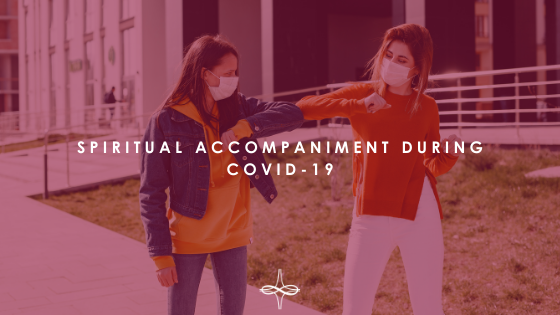
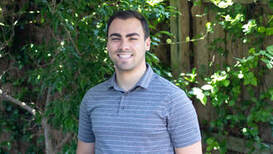
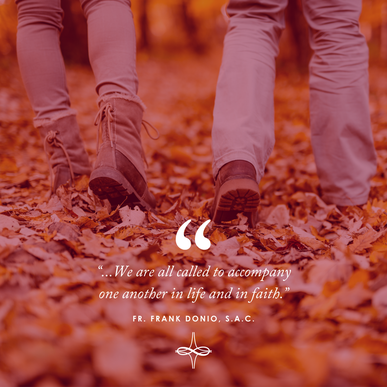
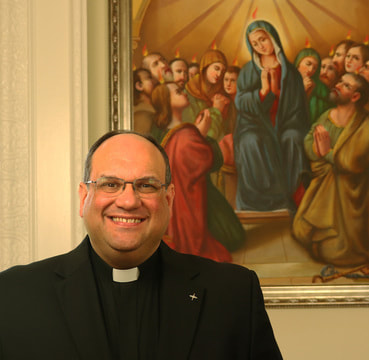
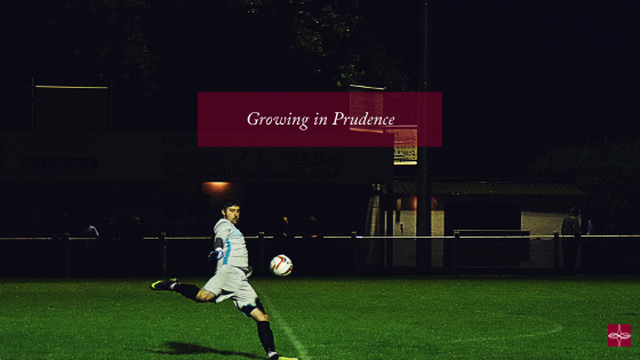
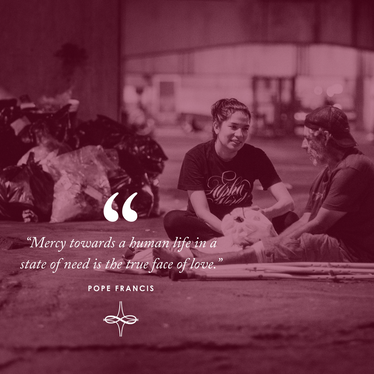


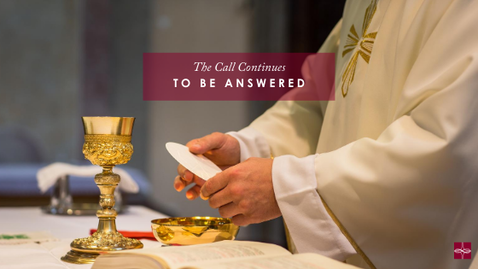


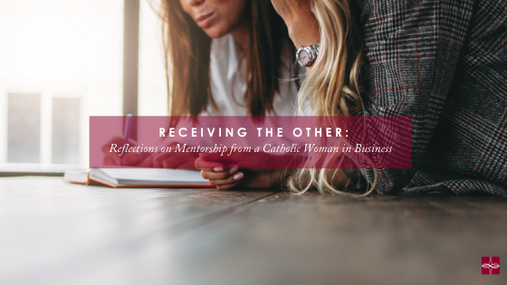

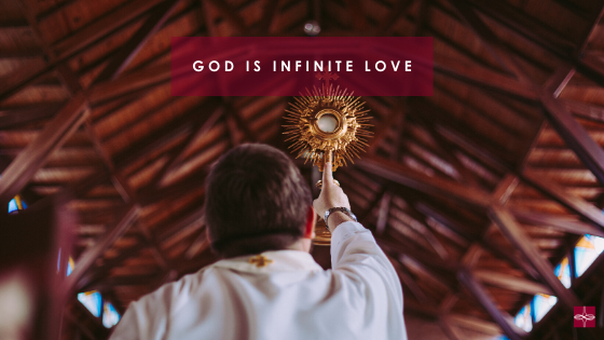
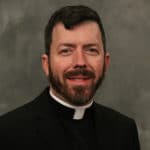
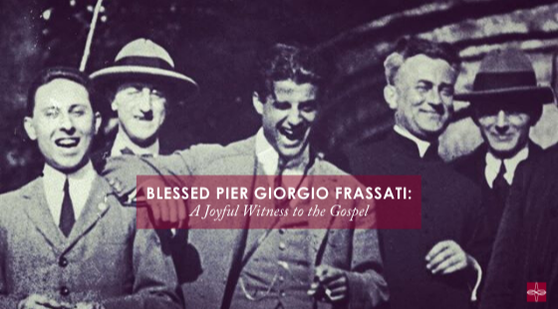

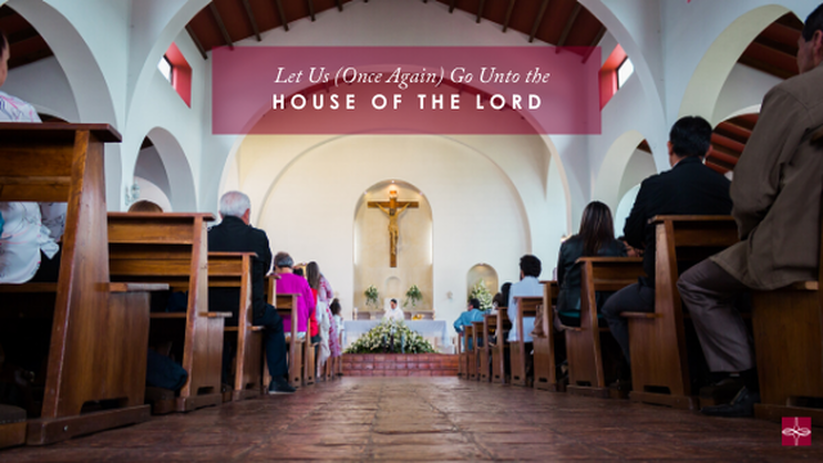

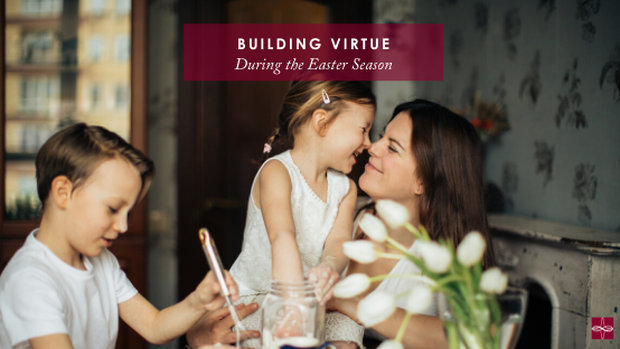

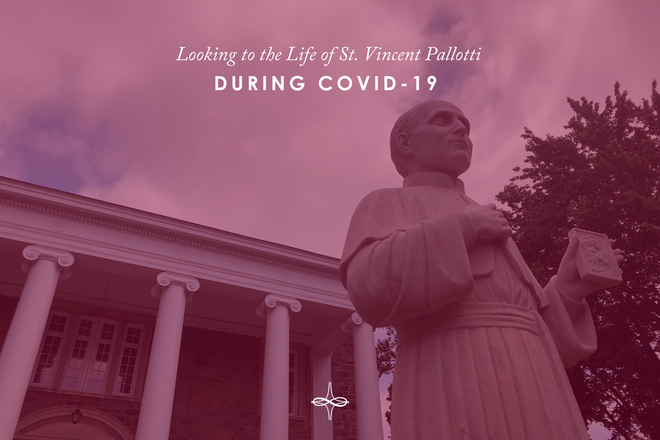
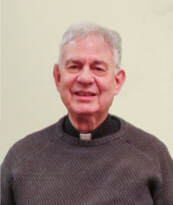
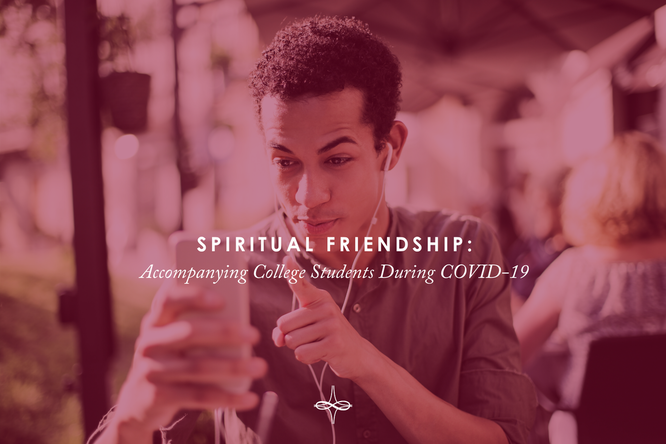
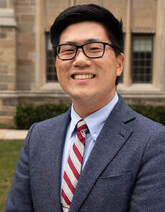

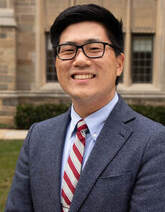
 RSS Feed
RSS Feed